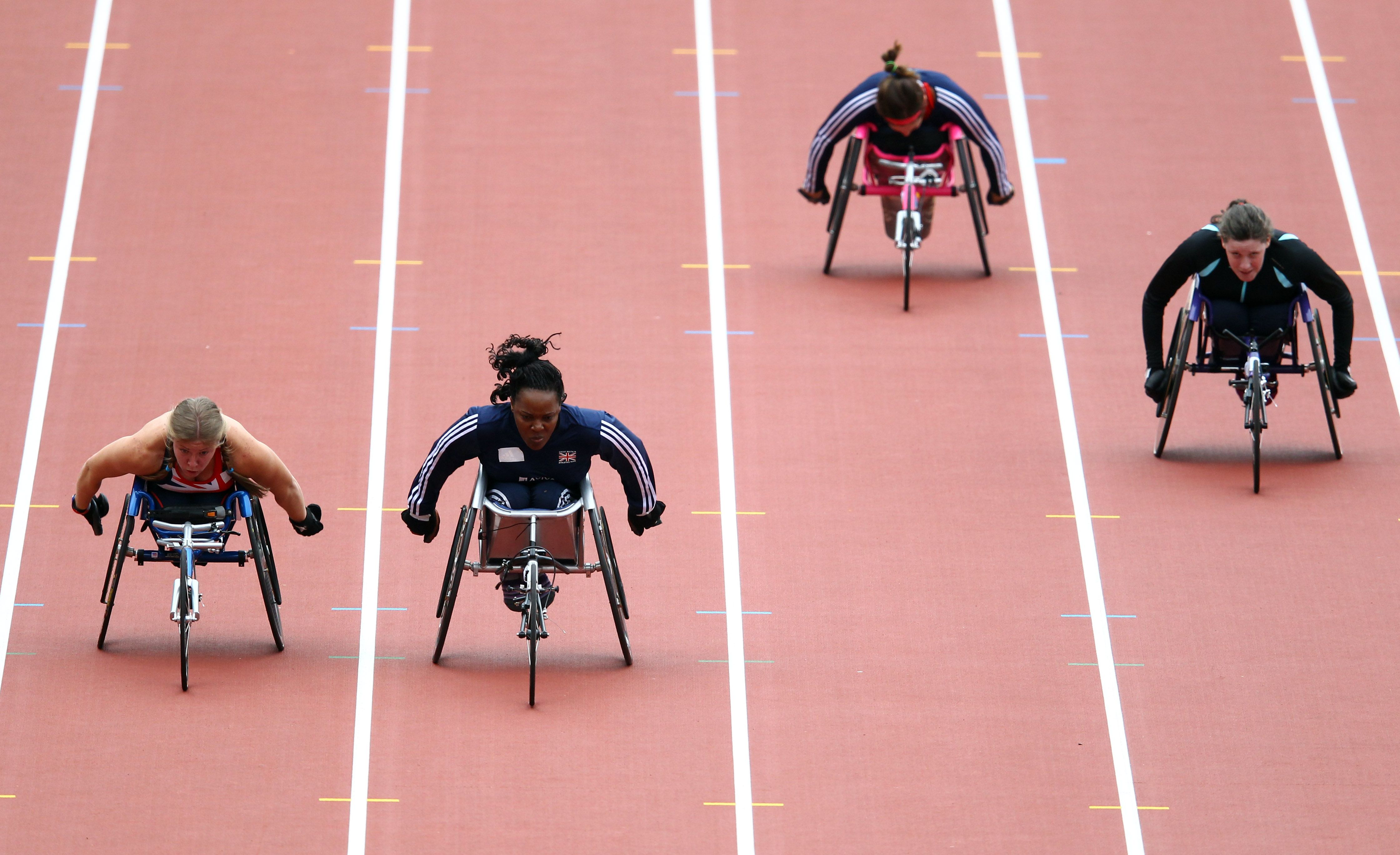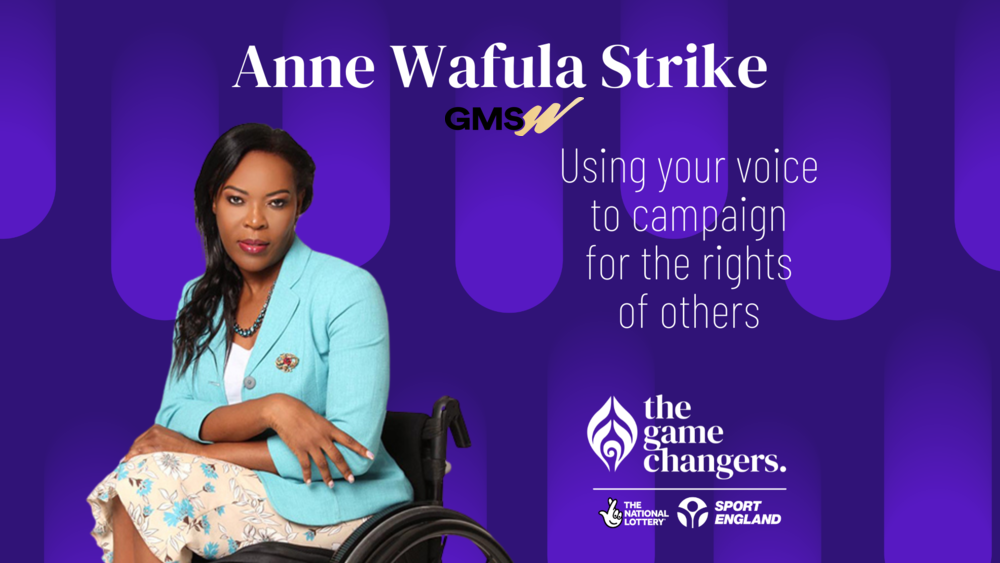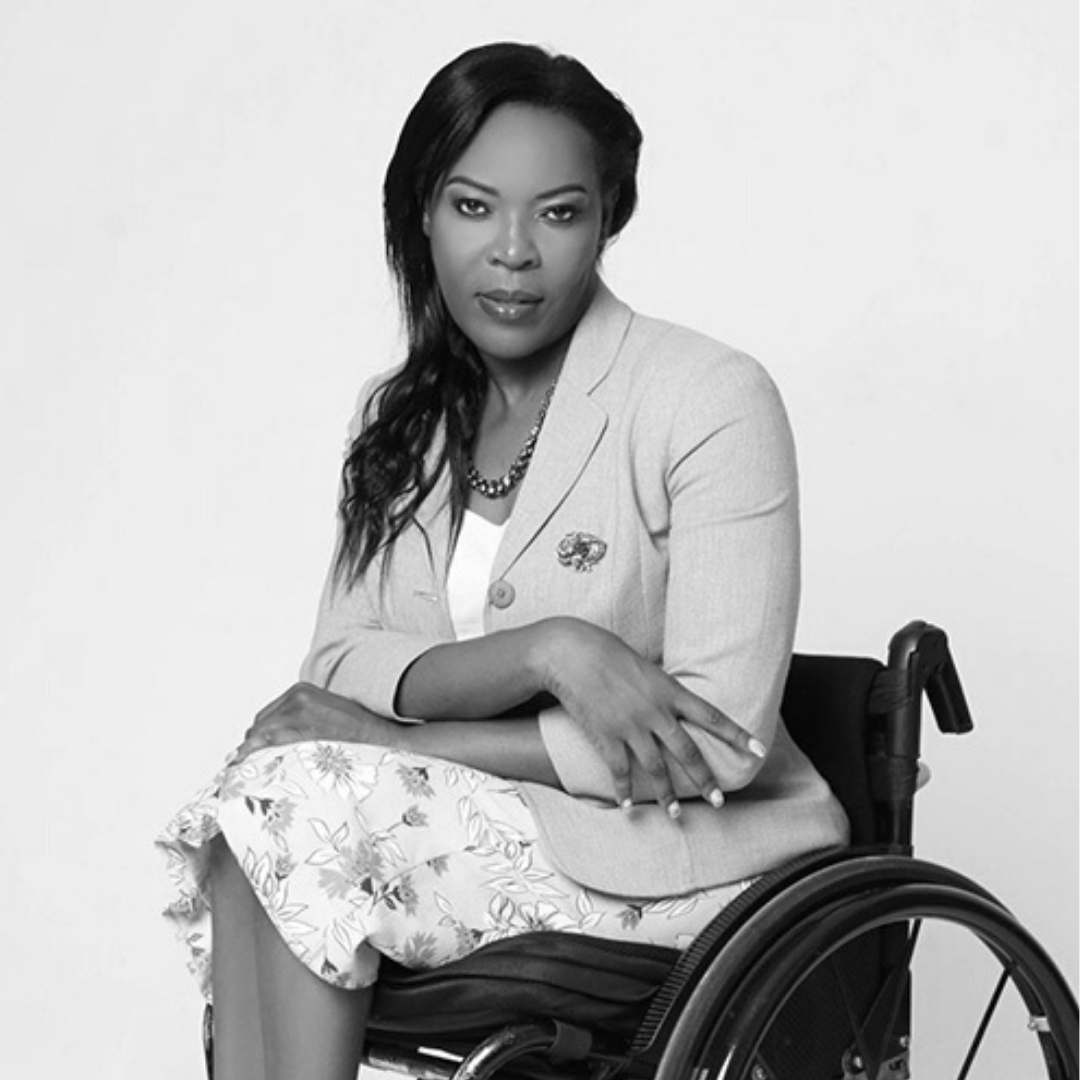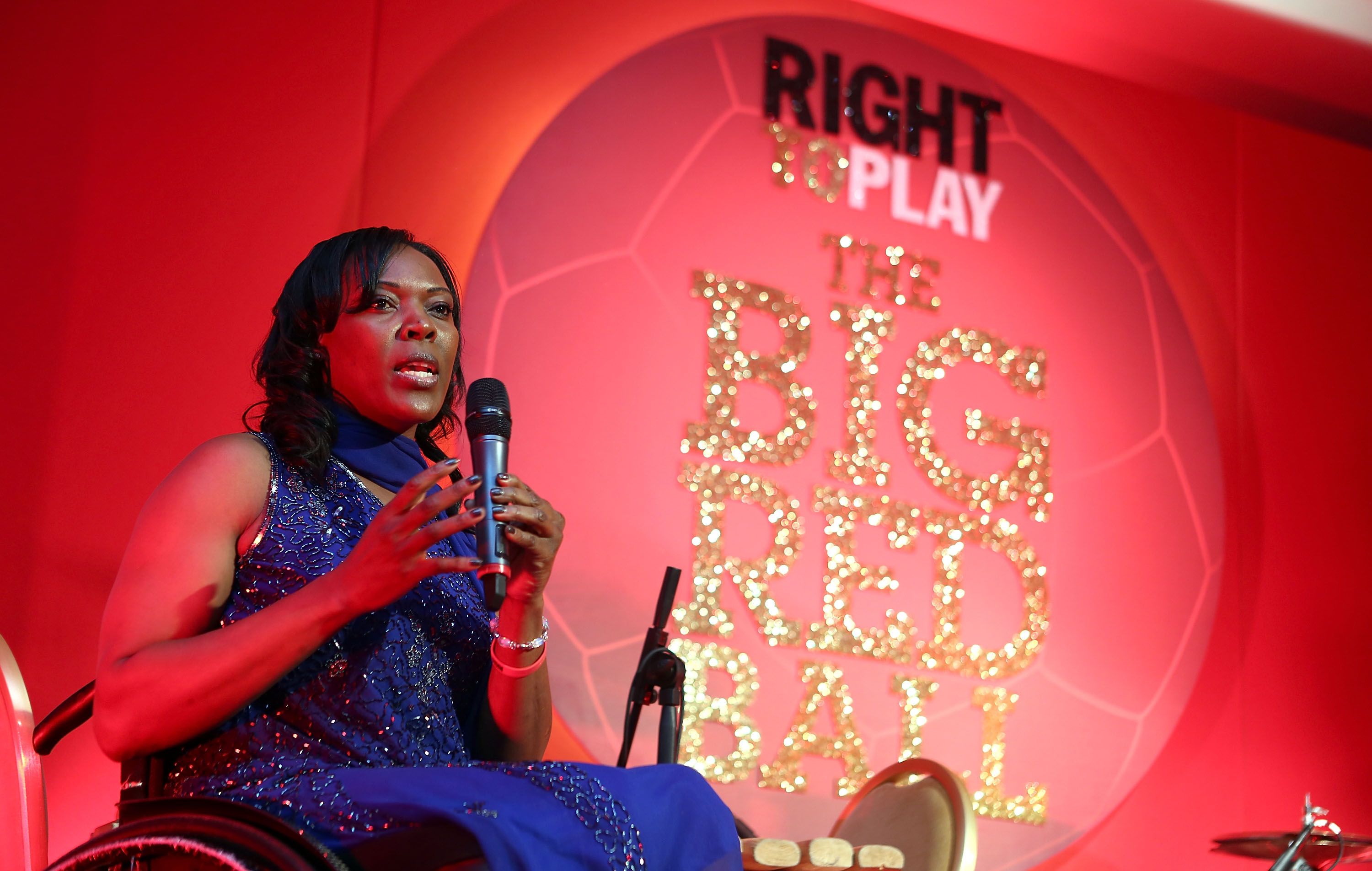The latest episode of the Gamechangers podcast featured the inspirational para-athlete Anne Wafula Strike. Born in Kenya, she contracted polio at the age of two, resulting in paralysis of her lower body. She arrived in the UK in April 2000, before being introduced to wheelchair racing two years later. In 2004, Wafula Strike became the first Kenyan wheelchair racer to represent her country at the Paralympics in Athens and later became a member of Team GB. Outside of athletics, the renowned wheelchair racer is also an author, speaker, disability rights campaigner and a powerful advocate for the less fortunate in society. For her services to disability sport and charity, she was awarded an MBE and was named as a special envoy to the Commonwealth in 2020. In a fascinating discussion with Gamechangers host Sue Anstiss, Wafula Strike discussed the struggles she overcame in her own life and how one can use their voice to campaign for the rights of others in society. While Wafula Strike was born a “very normal, healthy†child, after two and a half years she was suddenly struck down by an illness unknown to those around her at the time.  “The villagers had perceptions of what had made me ill,†she said. “Some thought, ‘Oh, she's just been cursed.’ Others were like, ‘No, you know what, this is witchcraft.’ And this was all because of a lack of knowledge of what was really affecting me.†It wasn’t until she went to Kenya’s capital city of Nairobi with her father that the former wheelchair racer discovered she had polio. The infectious disease is caused by the poliovirus which affects the central nervous system and can result in muscle weakness and flaccid paralysis. Yet, despite knowing the cause of her disease, Wafula Strike was ostracised by the people in her village, who lacked any knowledge of polio and were therefore scared of its potential spread. “We were actually thrown out of the village. The community around me did not understand what it was. They were so fearful that their children or other people in the village could contract the same thing, or if it was a curse, the curse would be contagious. So, they wanted me either dead or just to get out of the village. And on three occasions, they tried to burn my dad's hut down, and [in the end] we had to flee from the village.â€
“The villagers had perceptions of what had made me ill,†she said. “Some thought, ‘Oh, she's just been cursed.’ Others were like, ‘No, you know what, this is witchcraft.’ And this was all because of a lack of knowledge of what was really affecting me.†It wasn’t until she went to Kenya’s capital city of Nairobi with her father that the former wheelchair racer discovered she had polio. The infectious disease is caused by the poliovirus which affects the central nervous system and can result in muscle weakness and flaccid paralysis. Yet, despite knowing the cause of her disease, Wafula Strike was ostracised by the people in her village, who lacked any knowledge of polio and were therefore scared of its potential spread. “We were actually thrown out of the village. The community around me did not understand what it was. They were so fearful that their children or other people in the village could contract the same thing, or if it was a curse, the curse would be contagious. So, they wanted me either dead or just to get out of the village. And on three occasions, they tried to burn my dad's hut down, and [in the end] we had to flee from the village.â€
The death of Wafula Strike’s mother made it even harder for her to cope, but she is eternally grateful for her dad, who she describes as the “father of the century†for looking after her through all the tough times.
“I think I was just numb for so many years [after her mother’s death],†she admitted. “Thank goodness I had a father who still loved me unconditionally. I had this man who knew that he needed to protect me. He needed to open the world up for me. And he knew that if he didn't do that, then my life would be shrinking and shrinking and I would just disappear completely.â€
The Paralympics star also credits her father with inspiring her to believe she could achieve whatever she wanted, including an education.
“I'm so, so blessed that he is my father, actually,†she stressed. “He said to me, ‘Anne, there's nothing wrong with your head.’ He said, ‘Yes, you're struggling with your body because of this disability but there's nothing that can prevent you from getting an education.’
“He said ‘Look at education [as] a key, and what I'm trying to do when I'm [pushing] you and urg[ing] you to get an education, I'm actually giving you a magic key. And you will use this magic key to open up so many doors in the world.’â€
Clearly, her father’s words resonated as Wafula Strike went on to become the first wheelchair racer from Sub-Saharan Africa to compete in the Paralympics at Athens 2004.
The Kenyan born star emphasised that it meant even more to her that those people who never believed a disabled person could achieve anything, finally saw that it was possible.
“It was exciting. Remember, this is a girl who was ostracised from her village because I was different, because I became disabled. And then this girl is now in Athens flying the flag of my nation. So, it was ironic that wearing that jersey meant so much. It just meant so much because I knew so many people who did not believe that a disabled person could achieve something would be watching on TV.â€
By the time London 2012 came around, Wafula Strike exemplified that perceptions of disabled athletes had started to shift even more.
“London 2012 was magical. And if you speak to any athletes who competed at London 2012, they'll tell you how important that was and how it just changed how people looked at disability.
“People started to look at you as an elite athlete, not just those disabled people trying to do amazing things –– trying to run 100 metres or trying to do the marathon.
“The only challenge that we saw after the games in 2012 was the world expecting every disabled person to get out, get in a racing chair, get a prosthetic leg, go swimming [and] do everything. And that was so unfair because it's not every bodied person that becomes a Usain Bolt or a Mo Farah.
But also, it did show the community that when you have a disability, if you're given an opportunity, you can excel.
“And I think to me, that was my big take from the games in London 2012. I think it was more about opportunity, access, inclusion, support. It was just really incredible to see so many disabled athletes on TV, on posters. And people were talking and calling them by their names because they knew who they were. That was beautiful.â€
Though Wafula Strike has been forced to deal with so much discrimination because of her gender, race and disability, she does not cast blame or hold grudges. Asked where this compassion comes from, the now inspirational speaker once again credited her father and explained the need to change perceptions.
“Let me tell you something. When we were chased away from the village, my father had so much bitterness. My father hated his village, hated everybody in that village because of what they'd done to us. And for so many years, my dad never wanted to return back to the village.
“He's now back in the village, living in a very nice house and interacting and doing so much work in the community. But it took my dad so many years before my dad actually explained it to us. And he said, ‘Do you know what? I forgive them. I forgive them because they did this out of ignorance.’
Wafula Strike believes that sport itself can be a strong catalyst for breaking barriers as well as promoting inclusion, and considers it a powerful vehicle by which to bring about change.
“Sport has great benefits to promote inclusion and to make people thrive,†she said. “So, we need to really go out and start asking ourselves, how do we really want to champion sport as a catalyst for development in this nation?â€
This article was produced in partnership with The Game Changers podcast, which is supported by Sport England. You can listen to the full episode with Anne Wafula Strike here.






















